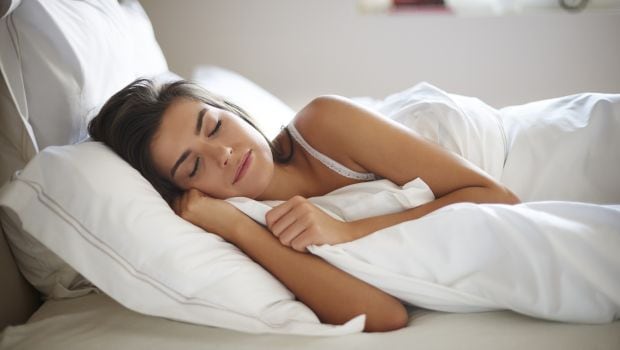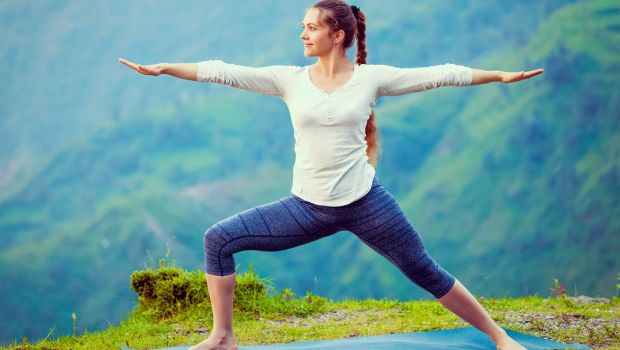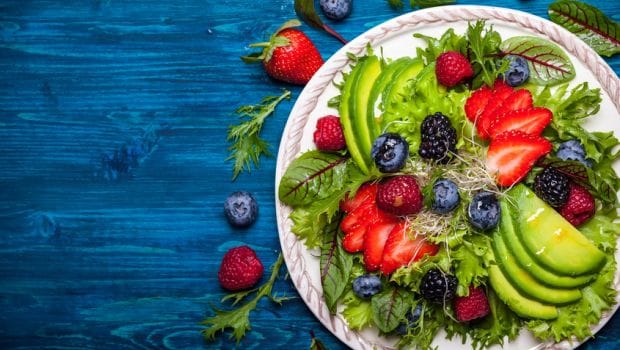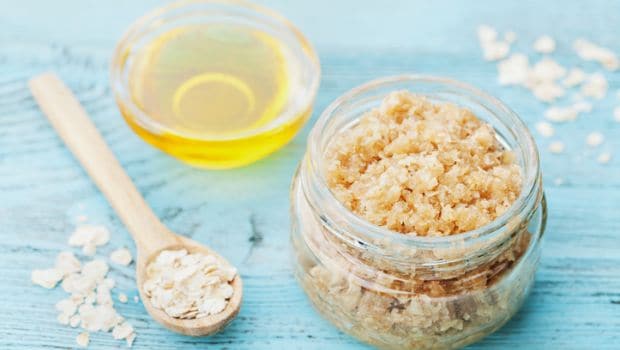Having Trouble Getting Good Sleep? Regular Exercise Can Help

Sleep is essential for the proper functioning of our body. It is not without reason that health experts advice not to take lightly the basic rule of seven to eight hours of sleep daily. Improper sleep leads to a stressed mind, which then not only impacts your work but also puts you at risk of heart disease, anxiety, insomnia, depression, etc. In the desperate need for sleep, most people resort to sleeping pills, which come with consequences in the long run. But the truth is that there are numerous healthier ways you can improve your sleep. These methods may take time to show effect but is better for good health. Take exercise for instance. It plays a crucial role for ensuring good sleep on a regular basis as it leads to tiredness, which then results in good rest. If you have been struggling to get good sleep, here are some tips that can help –
1. Go Exercise
It’s not without reason that health experts emphasise on the importance of physical activities for our well-being. Researchers have found that exercise can help a great deal in getting a good night’s sleep. Even something as simple as walking can be a positive step towards treating insomnia and sleep apnea. Researchers have found that people with sleep problems, exercise can be a safer alternative to taking medications.
“There are more solid studies recently that looked at people clinically diagnosed with insomnia disorder, rather than self-described poor sleepers,” said Christopher Kline, from the University of Pittsburgh. “The results show exercise improves both self-reported and objective measures of sleep quality, such as what’s measured in a clinical sleep lab.”

2. Eat Healthy
It is a fact that diet plays an important role in helping us sleep better. “Overall, people who sleep seven to eight hours each night differ in terms of their diet, compared to people who sleep less or more. We also found that short and long sleep are associated with lower food variety,” said Dr. Grandner of the research team from University of Pennsylvania in the US. The team found that very short sleep was associated with less intake of tap water, lycopene (found in red-and orange-coloured foods), and total carbohydrates whereas short sleep was associated with less vitamin C, tap water, selenium (found in nuts, meat and shellfish), and more lutein/zeaxanthin (found in green, leafy vegetables).
Long sleep was associated with less intake of theobromine (found in chocolate and tea), dodecanoic acid (a saturated fat), choline (found in eggs and fatty meats), total carbohydrates, and alcohol. Gastric discomfort is the most common cause of disrupted sleep and to avoid it one should opt for foods that are light and soothing.

3. Try Prebiotics
Prebiotics are basically non digestible food ingredients (such as the fibers found in many plant sources like asparagus, oatmeal, and legumes as well as in breast milk ) that are selectively metabolised by colonic bacteria which have the capacity to improve our gut environment. A study done by University of Colorado Boulder shows that eating prebiotics can restore healthy sleep patterns after a stressful event. The findings showed that stress could upset the gut’s microbiome, as well as restful sleep – essential elements for a healthy life. A diet rich in prebiotics was found to increase beneficial bacteria as well as protect gut microbes from stress-induced disruptions. In addition prebiotics also lead to the recovery of normal sleep patterns.

4. Alcohol is Not the Answer
We commonly assume that after a hard day’s work, a glass or two of alcohol may help us get good sleep. But according to researchers at the University of Melbourne, Australia, drinking alcohol before going to bed might result in disturbed, poor quality sleep. Not just that, pre-sleep drinking also affects your well-being in the daytime. Alcohol initially works as a sedative but disrupts sleep later at night, and regular consumption may affect neurocognitive functions like learning and memory processes. The study concluded by saying that alcohol should not be treated as a sedative or a catalyst to sleep. Though sleep might be quicker, the fact is that the quality of sleep will be considerably poor and disrupted.

5. Calcium May Help
The custom of drinking a glass of warm milk before going to bed is not without reason. Science too supports this habit as researchers from University of Tokyo found that sleep depends on the activity of calcium inside neurons, and a mechanism regulated by calcium ions is responsible for controlling the sleep duration. Milk also contains tryptophan, an amino acid that converts into serotonin, which is known to induce calming effects in the brain.
